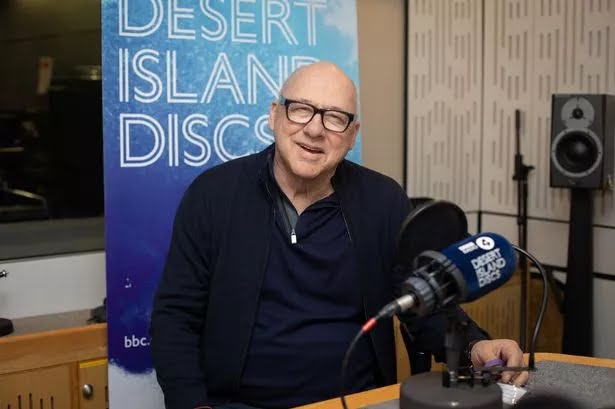
Legendary Dire Straits guitarist Mark Knopfler, has shared that his unique guitar playing style was inspired by strumming tennis rackets with his sister during their childhood.
The 74 year old musician, who is naturally left-handed, recounted how in his younger days while mimicking a guitar with a racket, his older sister intervened and corrected his stance, telling him “that’s the way you play it”.
Speaking on BBC Radio 4’s Desert Island Discs, Knopfler credited his family, particularly his big sister Ruth, for having a significant influence on his musical journey.
In conversation with host Lauren Laverne, he reflected: “Well, it’s because of my big sister Ruth, and I think big sisters are very important in this world.” Knopfler reminisced about using inexpensive tennis rackets as makeshift guitars, saying, “We had these dodgy little tennis rackets that you could get for not very much money, we used to use the tennis racket as a guitar.”
He continued, detailing the pivotal moment: “I was playing it, I was pretending it was a guitar, and she turned it round so that I was holding it right-handed, and she said that’s the way you play it.” The experience of being a left-hander playing a right-handed guitar, as Knopfler explained, meant that his dominant hand was on the fretboard, creating the notes.
He attributed his ability to perform a vibrato on multiple strings simultaneously to the early adaptation his sister prompted by flipping the tennis racket, which provided him “a little bit of flexibility”.
Knopfler’s illustrious career with Dire Straits began in 1977 and lasted until the band parted ways in 1995. He has enjoyed a successful solo career alongside his achievements with the band, including creating the memorable film score for 1983’s ‘Local Hero’.
With Dire Straits, Knopfler achieved five UK top 10 singles and four number one albums, while his solo efforts have resulted in three UK top 40 singles and nine top 10 albums. Among his most celebrated tracks are ‘Money For Nothing’, ‘Sultans Of Swing’, and ‘Going Home: Theme Of The Local Hero’.
Reflecting on his family’s support, Knopfler expressed gratitude, saying, “They never stood in the way (of his love of music), I played shockingly bad boogie woogie piano, taught by my uncle Kingsley in the house.”
He continued, “I played it and played it and played it, but I don’t think it ever improved.” Knopfler also recounted the patience his parents showed, despite the noise, “I could not believe how patient they must have been because as well, my brother David had a drum kit.”
Describing the domestic musical chaos, he added, “The drums were in the garden shed, just in the little back garden there.”
“The poor neighbours, and the poor parents with the boogie woogie, and then later on when I got a guitar I’d be stomping and stomping on the floor.”
“But they never stood in the way of it,” he affirmed.
The Glasgow-born star also credited his early days as a journalist with the Yorkshire Evening Post as being instrumental in honing his songwriting skills. He concluded, “The first job I got was on the Yorkshire Evening Post for under £10 a week.”
“I didn’t know anything, but I think it grew me up quite a lot, the good thing about that is, it does give you a clue that you’ve got to get yourself organised.”
“I think in some ways the songs got accelerated that way.”
“I was sent to interview the cast of this pantomime in the theatre in Leeds, and I’d find myself talking to (people saying) we’re the oldest ugly sisters in variety.”
“Anyway, I saw those lines in my notebook, years later and started thinking maybe this could be a song.”
“And that became a song, and as I said I’m very slow, years later I wrote this song, and years after that it got on an album. It actually got on the Sailing To Philadelphia album, called One More Matinee.”
“I started to call them portrait songs.”
Mark Knopfler will appear on Desert Island Discs on BBC Radio 4 at 10am on Sunday, August 4, and the show will also be available on BBC Sounds.
Leave a Reply